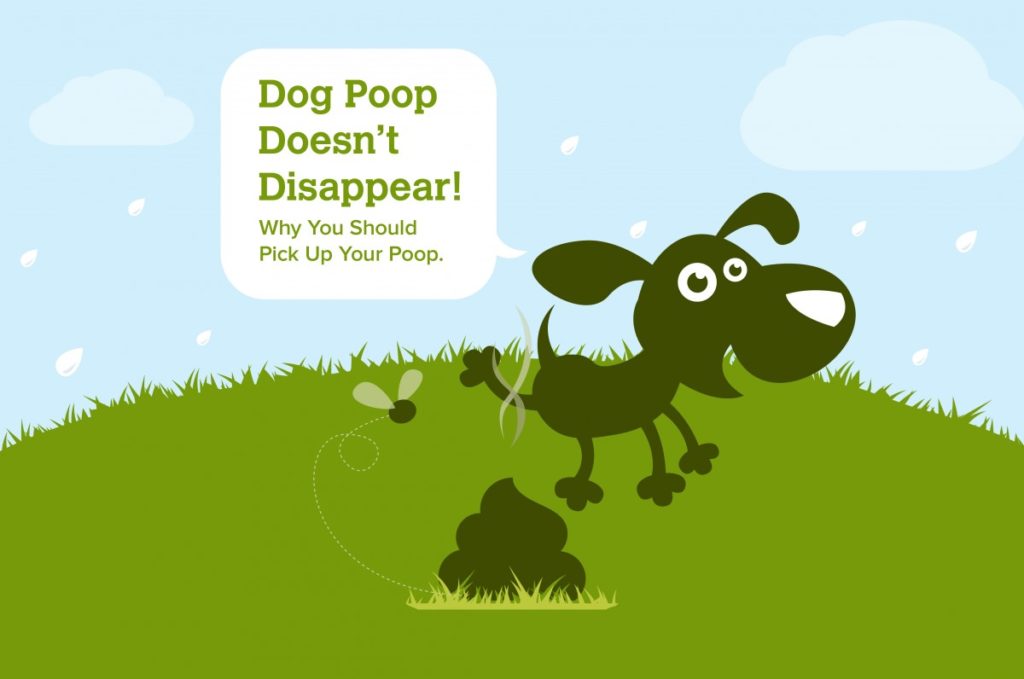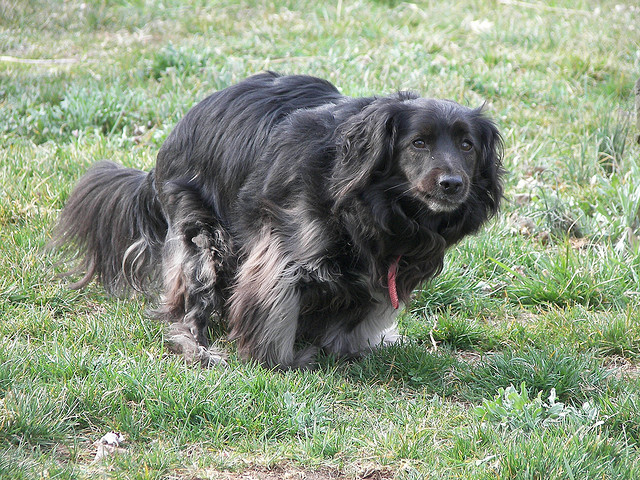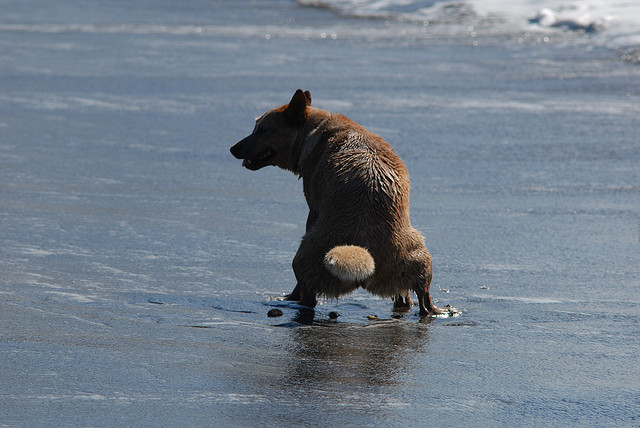We think of it as an act of decency, but there are actually much bigger reasons why we should be picking up after our dogs.
1.It’s A Toxic Pollutant
Did you know the U.S. Environmental Protection Agency (EPA) classifies dog waste in the same category as oil spills? That means that the EPA considers it a pollutant.

2. It’s Crawling With Germs
“Pet waste carries bacteria, viruses, and parasites that can threaten the health of humans and wildlife,” the EPA website says. “Pet waste also contains nutrients that promote weed and algae growth (eutrophication). Cloudy and green, Eutrophic water makes swimming and recreation unappealing or even unhealthy.”
3. There’s A LOT Of It!
Think it’s no big deal? American dogs alone create more than 10 million tons of waste a year. (www.livescience.com)
Earth Rated, a lifestyle brand for dog lovers, makes products to help dog owners do their part. They have created an infographic that summarizes why dog waste is a hazard that needs to be disposed of properly.

4. It Can Contaminate Water Supplies…
If you leave your dog’s waste behind, it can get mingled into storm water runoff, into storm drains, or nearby bodies of water. According to the EPA, “untreated animal feces often ends up in lakes and streams, causing significant water pollution.”
Once in the water, the poop breaks down, releasing ammonia and the bacteria uses up the oxygen in the water. Both low oxygen and high ammonia can be harmful to the fish and plants that live in the water. In addition, pet waste contains “bacteria, viruses and parasites that can make water unsafe for swimming or drinking.” (Taken from The Central Contra Costra Sanitary District newsletter “Pipeline” Vol 17, no. 3 2013).

5. …A Lot
Studies have shown that 20 to 30 percent of the bacteria in water samples from urban watersheds come from dog waste.
The EPA also says that two or three days of waste from 100 dogs contain enough bacteria, nitrogen and phosphorous to close 20 square miles of a bay-watershed for swimming (or shellfishing).

6. And It Can Even Contaminate The Air You Breathe
And finally (If this wasn’t enough already to make you pick up after your dog), A study of air samples from Clevland, Ohio and Detroit, Michigan found that 10 to 50 percent of the bacteria in the air came from dog waste.
So What Should You Do With That Waste?
Obviously once you pick it up it has to go somewhere. The question is where and the answer is…
It depends.
Each city has its own laws and regulations when it comes to dog waste, and you should check with your local water district. Some cities will say it’s okay to flush dog doo. Others prohibit it.
For example, Central Contra Costra Sanitary District tells its residents to never flush pet waste because their treatment plant is not designed to treat pet waste, only human. In addition, they warn that “flushable” dog poop bags may be biodegradable but they still take a while to dissolve in water (one manufacturer told them 96 hours!); this can cause clogs.
You can also compost your dog’s feces in your own yard. Check out home supply or pet stores for specially designed containers. Amazon also has a variety of compost bins and disposal systems that you can check out. Once the feces is composted, you can use it as fertilizer on NON-EDIBLE garden plants only.
The most important thing it to find out what you need to be doing in your area to minimize pollution.
Regardless of where you live, everyone can:
1. Pick up your dog’s waste
2. Put it in a biodegradable bag
3. Put in the trash.
If you would like more information including ways to implement a system and encourage your neighbors to pick up after their dogs, you can visit the EPA’s website for more information.
